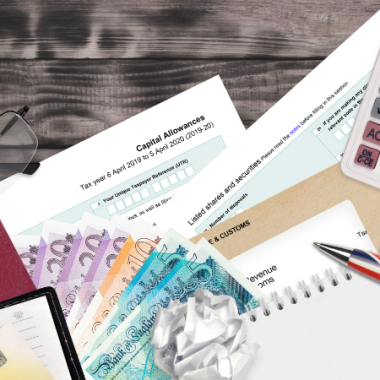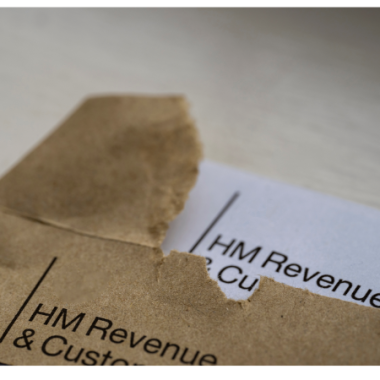Hello there! Ready to embark on your journey as a sole trader? You’ve come to the right place! This guide is your go-to resource for all the terms and steps you need to know to make your registration a breeze. Let’s dive in!
What Does ‘Sole Trader’ Actually Mean?
When you’re a sole trader, you are the business—there’s no separation between you and your enterprise. Whether you’re running your own venture or offering your skills to another company, you wear all the hats: the boss, the employee, and the owner. In essence, being a sole trader and being self-employed are interchangeable terms.
Can I Work Part-Time as Self-Employed/ Sole Trader While Being Employed Elsewhere?
Absolutely! Just remember to declare this additional income on your Self-assessment tax return.
Have You Ever Completed a Self-Assessment?
If you’ve already filled out a self-assessment, you’re ahead of the game. You’ll already have a UTR (Unique Tax Reference) and won’t need to register a new business/ register as self-employed again at HMRC. Just add this new venture onto the next self-assessment tax return you complete.
Registering at HMRC (His Majesty’s Revenue and Customs)
What You Need to Register as a Sole Trader
- Personal Identification
- National Insurance Number
- Business Address
- Trading Name (if different from your own name)
- Business Bank Account
What is a National Insurance Number and Why Do I Need It?
A national insurance number is a unique number that allows HMRC to record tax and national insurance contributions against your name. You’ll need to register for an NI number before you can officially become self-employed. To get your NI number, you can apply through the Department for Work and Pensions (DWP) see apply for a national insurance number. The process usually takes about two to six weeks.
Now, here’s the catch: You can only get an NI number if you’re a resident of the UK. If you’re not a UK resident, you won’t be able to register as self-employed. In that case, your alternative is to register an LTD (Limited) company to operate in the UK.
Most Questions Are Pretty Straightforward, But… ❓
Here are some questions that often trip people up when completing sole trader applications:
- Are you a share fisherman?** Answering ‘Yes’ puts you on a different NI percentage.
- Is your business in Investment?** This means you buy assets to let them accumulate in value.
- Will the new business work only for one other person or firm?** This question checks whether you should actually be classed as an employee of the firm you intend to do your work for.
Important Information About Your Start Date as Self-Employed
Don’t forget to jot down the date you officially start your sole trader journey—it’s more important than you might think! This date is crucial for tax purposes and plays a key role in your Self-assessment tax return. Plus, you’ll need it to register as a sole trader with HMRC.
What is a Unique Tax Reference (UTR) Number?
When you register, HMRC will send you a UTR number. This is your unique identifier for all tax-related matters. Keep it safe; you’ll need it for your Self-assessment tax returns. You’ll get your UTR by post 15 days after you register. You can usually see it sooner in your Personal Tax Account or the HMRC app.
Government Gateway Account (personal tax account at HMRC)
Once you’ve registered as a sole trader, you’ll need to create a Government Gateway account to manage your tax affairs and view your UTR number. Everyone with an NI number already has an account you just need to verify yourself to get logged in. https://www.gov.uk/personal-tax-account
If you find the online version a bit cumbersome, the HMRC App is a more user-friendly alternative.
Can I Use My Home Address as My Business Address?
Absolutely! All details submitted to HMRC remain private. However, if you’d like to keep your personal address confidential on invoices or directories Duport’s privacy package has got you covered.
Do I Need a Trading Name?
You can trade under your own name or choose a unique trading name. Just make sure it stands out and is unique.
Other Must-Knows
How Do I Stop Someone from Using My Trading Name?
When you register as a Sole Trader, you don’t automatically get any protection for your business name.
However, Duport has a Protected Name package for Sole Traders, which means your business name is protected as a limited company at Companies House, this prevents anyone else from trading under it as an LTD company.
If you intend to grow your sole trader business, you may require an LTD structure in the future so it’s really important that your business name is still available. We also strongly advise you to register your domain names ASAP.
Do I Need to Register for VAT?
Only if your turnover exceeds a certain threshold, currently £85,000. Otherwise, you’re good to go!
Need to Register for PAYE to Pay Myself?
Nope! As a sole trader, you simply take money from your business account as needed.
Can I Hire Employees?
Yes, you can! But you’ll then need to set up a PAYE system for them.
What is a Sole Trader Partnership?
This is when two or more sole traders join forces but still operate as individual businesses.
Do I Need a Business Bank Account?
It’s not mandatory, but it does make managing your finances a lot easier. Plus, it looks more professional giving your clients confidence in your services.
What is a Trade License?
Some professions require a license to operate. Our industry guides will advise you on which licenses you need.
Record-Keeping
Keep records of all transactions, including invoices and bank statements. If you’ve incurred expenses while setting up your business but haven’t officially registered as a sole trader yet, don’t worry—you can still claim those costs. In the UK, you can claim expenses for up to seven years before you officially register your business. These are known as ‘pre-trading expenses,’ and they can include anything from market research and buying stock to professional fees and equipment costs.
When you do register and complete your first Self-Assessment tax return, you can include these pre-trading expenses as allowable business costs. This can help reduce your tax bill, giving you a financial leg up as you start your sole trader journey. Just make sure you’ve kept all the relevant receipts and records to back up your claims.
Duport’s Support 🤝
Why go it alone? With Duport, you get ongoing support, from understanding tax obligations to setting up a business bank account. Plus, our privacy package ensures your personal details stay just that—personal.
Why use Duport (official Companies House Agent) to register you with HMRC
- Much quicker and easier registration process.
- Business name protection.
- Exclusive Industry Guide: Receive a tailored guide specific to your business sector, giving you the insights you need to succeed.
- Ongoing Business Support: Benefit from continuous support through live one-to-one sessions, email, and phone assistance and guides, ensuring you’re never alone on your business journey.
- Instant Bank Account Setup: Get your business bank account up and running in no time, so you can start trading immediately.
- Domain Registration: Secure your online presence with our hassle-free domain registration service.
- Address Services: Maintain your privacy with our address options.
- In-House Accounting Firm: Access expert financial advice whenever you need it, thanks to our own accounting company.
- Sole Trader registration costs £43.99
- With Duport, you’re not just forming a company; you’re gaining a long-term business partner.
And there you have it! You’re now well-equipped to become a savvy sole trader. Ready to take the plunge? Duport is here to help every step of the way. Register as a sole trader here: sole trader packages







